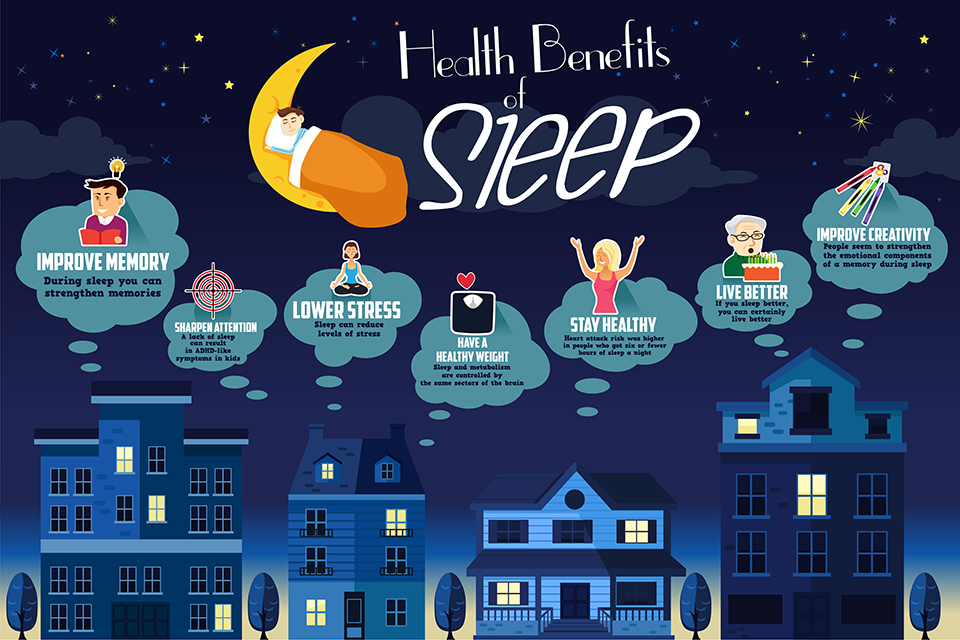According to the National Institute of Neurological Disorders and Strokes (NIH), most adults need 7-9 hours of uninterrupted sleep a night. This allows the heart to recover from strain that occurs during waking hours. Substantial evidence demonstrates that consistently not getting a good night’s sleep could negatively affect heart health.
Tips for a Good Night Sleep:
-
Develop strategies for relaxation: Techniques like deep breathing, a warm bath, yoga, light stretching, and mindfulness meditation can promote relaxation.
-
Plan a consistent sleep-wake schedule: Keeping the same bedtime and wake-up time every day (even on weekends) is widely considered to be one of the best ways to encourage healthy and stable sleep from night to night.
-
Design an accommodating bedroom: Create an optimal sleep environment by ensuring that the bedroom has a comfortable mattress and pillow, a pleasant temperature (~65 degrees Fahrenheit), and is as quiet and dark as possible.
-
Avoid negative influences of sleep: Alcohol, nicotine, and caffeine can all interfere with sleep and should be avoided 4 hours prior to bedtime. Excessive use of electronic devices can also throw off your sleep patterns by reducing melatonin production.
-
Exercise during the day: Exercise 20 to 30 minutes a day, but avoid vigorous exercise a few hours before going to bed.
-
Don’t lie in bed awake: Try doing something else like meditating, reading, listening to music, or journaling until you feel tired.
References:
https://www.sleepfoundation.org/sleep-deprivation/how-sleep-deprivation-affects-your-heart
https://www.ninds.nih.gov/Disorders/patient-caregiver-education/understanding-sleep#4




